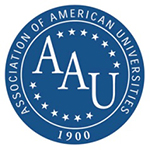
Washington University in St. Louis is one of eight Association of American Universities (AAU) member campuses selected to serve as project sites for the association’s five-year initiative to improve the quality of undergraduate education in science, technology, engineering and mathematics (STEM) fields at its member institutions, AAU officials announced today.
The initiative, which was announced in 2011, is designed to encourage departments in these disciplines at AAU universities to adopt proven, evidence-based teaching practices and to provide faculty with the encouragement, training and support to do so.
“This proposal allows for the collaborative development of teaching strategies in our STEM curriculum that will bring benefit to all universities that prepare future leaders in STEM fields,” said Washington University Chancellor Mark S. Wrighton.
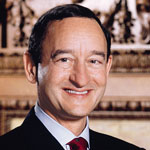
Leading this effort has been the university’s Teaching Center, which offers STEM-focused faculty workshops and a biennial iTeach faculty development symposium to explore how new research in cognition and learning can be applied in the classroom.
In 2008, a group of 20-30 university faculty and staff with an interest in STEM education established an informal, interdisciplinary STEM-focused teaching community that meets weekly to discuss theireducational research projects.
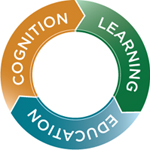
In 2011, the university created a campus-wide initiative known as the Center for Integrative Research on Cognition, Learning, and Education (CIRCLE) to evaluate and implement new STEM teaching methods using lessons drawn from the latest evidence-based research in the cognitive, learning and education sciences.
“Evaluation of our education innovations through collaboration between CIRCLE and faculty across the university ensures that innovations improve student learning and retention in STEM majors,” Wrighton said. “These evaluation studies will help identify key features important for the widespread and effective implementation of empirically validated teaching practices in STEM classrooms and effective mechanisms of support for institutional change.”
Over the next three years, each of the eight campus sites selected by AAU will implement a major undergraduate STEM education project that incorporates key elements of the AAU STEM framework, which is based on these more effective teaching practices.
In addition to Washington University, the other seven campuses selected for the program are Brown University, Michigan State University, University of Arizona, University of California, Davis, University of Colorado Boulder, University of North Carolina at Chapel Hill and the University of Pennsylvania.
The eight sites were chosen from among 31 AAU universities that submitted concept papers, based on a number of criteria, such as the degree of department and faculty engagement, institutional commitment, likelihood of sustained organizational change, and commitment to evaluation and assessment.
In addition, the process was designed to ensure that projects would address a wide range of the elements outlined in the AAU STEM Framework. The elements focus on various challenges departments face in changing teaching methods, ranging from assessing and rewarding teaching excellence to faculty professional development and assessing student learning.
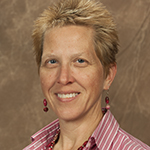
Washington University’s proposal for the AAU initiative was developed by Regina F. Frey, PhD, the university’s inaugural Florence E. Moog Professor of STEM Education; Mark A. McDaniel, PhD, professor of psychology in Arts & Sciences; Kathryn G. Miller, PhD, professor and chair of the Department of Biology in Arts & Sciences; and Kurt A. Thoroughman, PhD, associate professor and associate chair for undergraduate studies in biomedical engineering.
Frey, an associate professor of chemistry in Arts & Sciences, is executive director of The Teaching Center and co-director with McDaniel of CIRCLE.
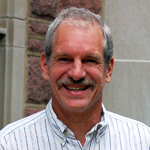
Thoroughman also serves as director of undergraduate studies for the School of Engineering & Applied Science.
As lead investigator of an HHMI grant that supports curricular development, K-12 outreach and undergraduate research, Miller is very involved in a number of initiatives on topics related to the AAU STEM education project. She’s also heavily involved in higher-education curricular reform on a national level.
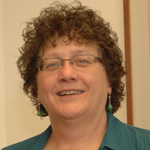
Washington University will use its AAU grant to expand its exploration, implementation and evaluation of active-learning techniques, such as collaborative problem solving and interactive classroom discussion. Active learning engages students and encourages them to think more deeply about course content. Rather than simply memorizing facts and figures, active learning fosters creative thinking and builds skills in information processing and analysis, research shows.
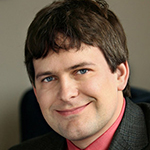
Washington University’s three-year grant proposal calls for a flexible, multiple-strategy approach for incorporating active learning into lower-level STEM courses, allowing individual faculty to select techniques that are best suited to their specific discipline, course topic and teaching style. Generally, the initiative aims to identify active-learning best practices, to support faculty interested in implementing them in their classrooms and to use each experience as an opportunity for further evaluation and improvement of these approaches.
Ultimately, the initiative aims to bring about a culture change in the Washington University learning community, one that integrates the educational research and teaching communities and spurs more and more faculty to incorporate proven and effective active-learning techniques in their classrooms.
Washington University’s proposal encompasses the schools of Art & Sciences and of Engineering and Applied Science and initially five departments (biology, chemistry, physics, psychology, chemical engineering and biomedical engineering) and four university-wide centers (The Teaching Center, CIRCLE, Cornerstone and Washington University libraries).
One key component of the proposal to increase the number of faculty focusing on implementing and evaluating evidence-based STEM methodologies is the CIRCLE Fellows Program, which calls for the annual selection of two to three core faculty from various STEM disciplines to serve as CIRCLE fellows for two years. Faculty participating in the program will receive intensive support from The Teaching Center and CIRCLE for the implementation and evaluation of new STEM teaching techniques in their undergraduate courses.
The AAU initiative received a three-year, $4.7 million grant from the Leona M. and Harry B. Helmsley Charitable Trust last October that has enabled the association to develop the initiative framework and will provide a total of $500,000 seed money to each project site over the next three years for implementing change.
AAU also will create an AAU STEM network in which it expects most or all of its universities to participate. The network will enable faculty and administrators at AAU institutions to share best practices and promote sustainable change in undergraduate STEM teaching and learning.
Last month, AAU announced that it had received a two-year, $294,000 grant from the National Science Foundation to develop a set of metrics for the initiative that will allow individual institutions to evaluate their use of evidence-based teaching practices.
“We have reached an exciting milestone in our initiative,” said AAU President Hunter Rawlings. “With the strong support provided by the Helmsley Trust, these eight project sites will each begin — or in some cases continue — to institutionalize evidence-based teaching in STEM fields. These changes will make teaching and learning far more interactive and participatory, and we hope will enhance overall student learning in STEM fields and reduce the number of students who choose to drop out of these majors.”
He added, “The selection committee faced a very difficult task, as many universities submitted concept papers of very high quality. Eventually, it is our hope that all of our institutions will participate in and benefit from this initiative, because the truth is they are all working hard to improve undergraduate STEM teaching and learning.”
# # # # #
The Association of American Universities is an association of 60 U.S. and two Canadian research universities organized to develop and implement effective national and institutional policies supporting research and scholarship, graduate and professional education, undergraduate education, and public service in research universities. For more information on the AAU initiative, contact Ann Speicher: 202-898-7857; ann.speicher@aau.edu.
The Leona M. and Harry B. Helmsley Charitable Trust aspires to improve lives by supporting effective nonprofits in a variety of selected areas. Since 2008, when the Trust began its active grant making, it has committed more than $900 million to a wide range of charitable organizations. Through its National Education Program, the Trust views education as a lever to advance both American economic competitiveness and individual social mobility. In K-12, the Trust focuses on ensuring all students graduate high school prepared for college or careers by supporting teacher effectiveness and the implementation of high academic standards. In postsecondary education, the Trust is primarily interested in increasing the number of Science, Technology, Engineering and Mathematics (STEM) graduates who can participate in high growth sectors of the economy. The Trust also focuses on policy levers that improve postsecondary completion, particularly for underrepresented populations. For more information, visit www.helmsleytrust.org.